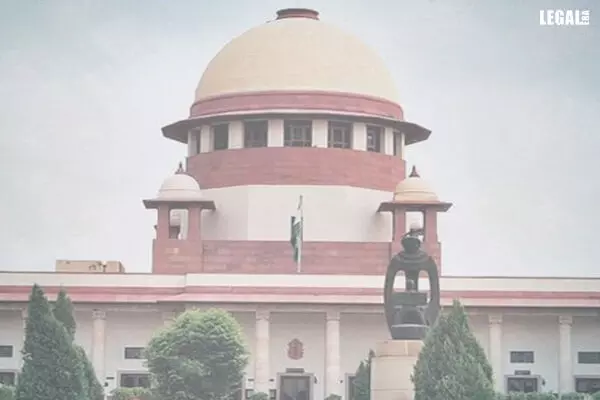- Home
- News
- Articles+
- Aerospace
- Agriculture
- Alternate Dispute Resolution
- Banking and Finance
- Bankruptcy
- Book Review
- Bribery & Corruption
- Commercial Litigation
- Competition Law
- Conference Reports
- Consumer Products
- Contract
- Corporate Governance
- Corporate Law
- Covid-19
- Cryptocurrency
- Cybersecurity
- Data Protection
- Defence
- Digital Economy
- E-commerce
- Employment Law
- Energy and Natural Resources
- Entertainment and Sports Law
- Environmental Law
- FDI
- Food and Beverage
- Health Care
- IBC Diaries
- Insurance Law
- Intellectual Property
- International Law
- Know the Law
- Labour Laws
- Litigation
- Litigation Funding
- Manufacturing
- Mergers & Acquisitions
- NFTs
- Privacy
- Private Equity
- Project Finance
- Real Estate
- Risk and Compliance
- Technology Media and Telecom
- Tributes
- Zoom In
- Take On Board
- In Focus
- Law & Policy and Regulation
- IP & Tech Era
- Viewpoint
- Arbitration & Mediation
- Tax
- Student Corner
- AI
- ESG
- Gaming
- Inclusion & Diversity
- Law Firms
- In-House
- Rankings
- E-Magazine
- Legal Era TV
- Events
- News
- Articles
- Aerospace
- Agriculture
- Alternate Dispute Resolution
- Banking and Finance
- Bankruptcy
- Book Review
- Bribery & Corruption
- Commercial Litigation
- Competition Law
- Conference Reports
- Consumer Products
- Contract
- Corporate Governance
- Corporate Law
- Covid-19
- Cryptocurrency
- Cybersecurity
- Data Protection
- Defence
- Digital Economy
- E-commerce
- Employment Law
- Energy and Natural Resources
- Entertainment and Sports Law
- Environmental Law
- FDI
- Food and Beverage
- Health Care
- IBC Diaries
- Insurance Law
- Intellectual Property
- International Law
- Know the Law
- Labour Laws
- Litigation
- Litigation Funding
- Manufacturing
- Mergers & Acquisitions
- NFTs
- Privacy
- Private Equity
- Project Finance
- Real Estate
- Risk and Compliance
- Technology Media and Telecom
- Tributes
- Zoom In
- Take On Board
- In Focus
- Law & Policy and Regulation
- IP & Tech Era
- Viewpoint
- Arbitration & Mediation
- Tax
- Student Corner
- AI
- ESG
- Gaming
- Inclusion & Diversity
- Law Firms
- In-House
- Rankings
- E-Magazine
- Legal Era TV
- Events
Promoters cannot continue to be in an insolvent company in any capacity: Supreme Court

Promoters cannot continue to be in an insolvent company in any capacity: Supreme Court
The Supreme Court closed the doors on defaulting promoters looking to keep a residual stake even after their company is sold off under the insolvency process.
In the Bhushan Steel case, where the promoters held a 2.35 per cent stake even after Tata Steel acquired a 72.65 per cent stake in the company, the Supreme court ruled that ex-promoters cannot hold a stake in the insolvent firm.
In 2017, the State Bank of India (SBI) took Bhushan Steel to court. The company owed Rs 59,000 crore to creditors. In May 2018, the NCLT approved Tata Steel's Rs 35,000-crore resolution plan for the company. Subsequently, Bamnipal Steel, a subsidiary of Tata Steel issued a letter to ex-promoters calling upon them to sell equity shares.
In March 2022, the NCLAT dismissed an appeal filed by the Singhals that challenged the October 2021 NCLT order that asked the promoter group to sell their 25 million shares at Rs 2 a piece to Tata Steel.
Calling the resolution plan "not workable", the SC reinstated the NCLAT order barring ex-promoters to continue as shareholders.
The two judge bench dismissed the appeal filed by the former Bhushan Steel promoter Neeraj Singal's against Tata Steel for the transfer of the residual shares. The Court observed that there is no ground for review order passed by the National Company Law Appellate Tribunal (NCLAT) which dismissed the appeal.
This move by NCLAT is seen as a positive development amongst the industry stakeholders as it will fastrack the process under the Insolvency and Bankruptcy Code (IBC) and also boost the confidence of new promoters looking to acquire stressed assets.
"According to us, the resolution plan shall not be workable at all. At this stage, it is also required to be noted that the appellants are the erstwhile promoters and therefore they cannot be continued to be in the company in any capacity may be as shareholders as rightly observed by the NCLAT," the Supreme Court order read.



